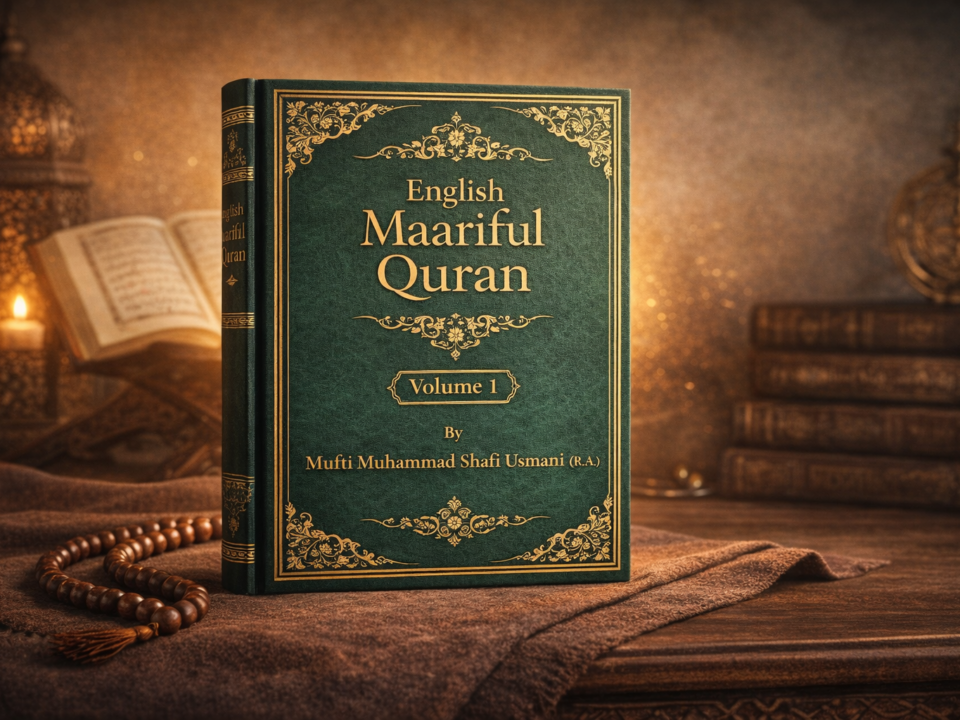The Legacy of Harun al-Rashid: Remembering the Fifth Abbasid Caliph on the 3rd of Jumada al-Thani
Introduction
On the 3rd of Jumada al-Thani, the Islamic world reflects upon the passing of one of its most celebrated and influential rulers, Harun al-Rashid. As the fifth Abbasid Caliph, Harun al-Rashid’s reign marked a significant period in Islamic history known as the Golden Age of Islam. During his rule, the Islamic empire witnessed cultural, intellectual, and economic prosperity. In this blog post, we will delve into the life, reign, and enduring legacy of Harun al-Rashid.Read More: Musa al-Kadhim (RA): The Legacy of Patience and CompassionHarun al-Rashid: A Brief Biography
Born in 763 CE in Ray, Iran, Harun al-Rashid was the son of Caliph al-Mahdi and a member of the powerful Abbasid dynasty. His ascension to the throne in 786 CE, at the age of 23, marked the beginning of a remarkable era in Islamic history. His rule would span over two decades, making him one of the longest-reigning caliphs in the Abbasid dynasty.Key Achievements and Contributions
Harun al-Rashid’s reign was characterized by several notable achievements and contributions:- Cultural Renaissance:Harun al-Rashid’s court in Baghdad became a vibrant center of culture, art, and scholarship. He was a patron of poets, scholars, and philosophers, including the renowned poet Abu Nuwas and the polymath Ibn al-Haytham. His support for the translation of Greek and Roman texts into Arabic helped preserve and transmit classical knowledge.
- Economic Prosperity:His reign oversaw significant economic growth within the Islamic empire. Trade routes flourished, and the empire’s wealth increased substantially. Baghdad emerged as a major hub for commerce and trade, connecting the East and West.
- Administrative Reforms:Harun al-Rashid implemented administrative reforms that bolstered the central government’s control over the vast Abbasid Empire. He established a network of spies and informers to ensure efficient governance and address potential threats.
- Diplomatic Relations:The Abbasid Caliph maintained diplomatic relations with foreign powers, including the Byzantine Empire and the Tang Dynasty in China. These interactions facilitated cultural exchanges and contributed to the transmission of knowledge and technology between civilizations.
- Legacy of the House of Wisdom:Harun al-Rashid is often associated with the establishment of the House of Wisdom (Bayt al-Hikmah) in Baghdad. This institution served as a major intellectual center where scholars from various disciplines gathered to translate and study works from different cultures. It played a pivotal role in advancing knowledge in fields such as mathematics, medicine, astronomy, and philosophy.
Enduring Legacy
Harun al-Rashid’s legacy continues to influence various aspects of Islamic history and culture:- Cultural Influence:His reign is celebrated as a period of cultural and intellectual flourishing in the Islamic world. The literature, poetry, and scientific advancements of his era remain a source of inspiration for scholars and enthusiasts alike.
- Literary and Artistic Contributions:The works of poets like Abu Nuwas and scholars like Al-Kindi, who thrived during his reign, remain significant contributions to Islamic culture and scholarship.
- House of Wisdom:The legacy of the House of Wisdom persists in contemporary discussions of Islamic intellectual history. It laid the foundation for subsequent scientific and philosophical endeavors in the Islamic world.
- Cross-Cultural Exchange:Harun al-Rashid’s diplomatic relations with other empires facilitated cross-cultural exchanges, contributing to a rich tapestry of knowledge and ideas.
Conclusion
The death of Harun al-Rashid on the 3rd of Jumada al-Thani marks the end of a remarkable era in Islamic history. His reign, characterized by cultural renaissance, economic prosperity, and intellectual growth, has left an indelible mark on the history of the Islamic world. Harun al-Rashid’s legacy continues to inspire scholars, artists, and thinkers, reminding us of the enduring contributions of the Golden Age of Islam to global culture and knowledge.Read More: The Battle of the Camel: Ali Ibn Abi Talib (RA) Triumphs on the 22nd Jamada ul Awwalعنوان: ہارون الرشید کی میراث: 3 جمادی الثانی کو پانچویں عباسی خلیفہ کی یاد
تعارف
3 جمادی الثانی کو، عالم اسلام اپنے ایک مشہور اور بااثر حکمران ہارون الرشید کے انتقال پر غور کر رہا ہے۔ پانچویں عباسی خلیفہ کے طور پر، ہارون الرشید کا دور اسلامی تاریخ کا ایک اہم دور تھا جسے اسلام کا سنہری دور کہا جاتا ہے۔ ان کے دور حکومت میں اسلامی سلطنت نے ثقافتی، فکری اور معاشی خوشحالی دیکھی۔ اس بلاگ پوسٹ میں، ہم ہارون الرشید کی زندگی، دور حکومت اور پائیدار میراث کا جائزہ لیں گے۔
ہارون الرشید: ایک مختصر سیرت
رے، ایران میں 763 عیسوی میں پیدا ہوئے، ہارون الرشید خلیفہ المہدی کا بیٹا اور طاقتور عباسی خاندان کا رکن تھا۔ 786 عیسوی میں، 23 سال کی عمر میں تخت پر چڑھنے سے، اسلامی تاریخ میں ایک قابل ذکر دور کا آغاز ہوا۔ اس کی حکمرانی دو دہائیوں پر محیط ہو گی، جس سے وہ عباسی خاندان میں سب سے طویل عرصے تک حکومت کرنے والے خلیفہ بن گئے تھے۔
کلیدی کامیابیاں اور شراکتیں۔
ہارون الرشید کا دور حکومت کئی قابل ذکر کامیابیوں اور شراکتوں سے نمایاں تھا:
ثقافتی نشاۃ ثانیہ: بغداد میں ہارون الرشید کا دربار ثقافت، فن اور علمی وادبی کا ایک متحرک مرکز بن گیا۔ وہ شاعروں، عالموں اور فلسفیوں کے سرپرست تھے، جن میں معروف شاعر ابو نواس اور کثیر المعروف ابن الہیثم بھی شامل ہیں۔ یونانی اور رومن متون کے عربی میں ترجمے کے لیے ان کی حمایت نے کلاسیکی علم کو محفوظ اور منتقل کرنے میں مدد کی۔
معاشی خوشحالی: اس کے دور حکومت نے اسلامی سلطنت کے اندر نمایاں اقتصادی ترقی کی نگرانی کی۔ تجارتی راستے پروان چڑھے، اور سلطنت کی دولت میں خاطر خواہ اضافہ ہوا۔ بغداد تجارت اور تجارت کا ایک بڑا مرکز بن کر ابھرا، جو مشرق اور مغرب کو ملاتا ہے۔
انتظامی اصلاحات: ہارون الرشید نے انتظامی اصلاحات نافذ کیں جس سے وسیع عباسی سلطنت پر مرکزی حکومت کے کنٹرول کو تقویت ملی۔ اس نے موثر حکمرانی کو یقینی بنانے اور ممکنہ خطرات سے نمٹنے کے لیے جاسوسوں اور مخبروں کا ایک نیٹ ورک قائم کیا۔
سفارتی تعلقات: عباسی خلیفہ نے بازنطینی سلطنت اور چین میں تانگ خاندان سمیت بیرونی طاقتوں کے ساتھ سفارتی تعلقات برقرار رکھے۔ ان تعاملات نے ثقافتی تبادلوں کو سہولت فراہم کی اور تہذیبوں کے درمیان علم اور ٹیکنالوجی کی ترسیل میں تعاون کیا۔
ایوانِ حکمت کی وراثت: ہارون الرشید اکثر بغداد میں ایوانِ حکمت (بیت الحکمہ) کے قیام سے وابستہ ہیں۔ اس ادارے نے ایک بڑے فکری مرکز کے طور پر کام کیا جہاں مختلف شعبوں کے اسکالرز مختلف ثقافتوں کے تراجم اور کاموں کا مطالعہ کرنے کے لیے جمع ہوتے تھے۔ اس نے ریاضی، طب، فلکیات اور فلسفہ جیسے شعبوں میں علم کو آگے بڑھانے میں اہم کردار ادا کیا۔
پائیدار میراث
ہارون الرشید کی میراث اسلامی تاریخ اور ثقافت کے مختلف پہلوؤں کو متاثر کرتی رہتی ہے:
ثقافتی اثر: ان کے دور کو اسلامی دنیا میں ثقافتی اور فکری ترقی کے دور کے طور پر منایا جاتا ہے۔ ان کے عہد کا ادب، شاعری اور سائنسی پیش رفت اہل علم اور شائقین کے لیے یکساں طور پر مشعل راہ ہے۔
ادبی اور فنی شراکتیں: ابو نواس جیسے شاعروں اور الکندی جیسے اسکالرز کی تخلیقات، جو ان کے دور حکومت میں پروان چڑھیں، اسلامی ثقافت اور علمی ادب میں نمایاں خدمات ہیں۔
ایوانِ حکمت: ایوانِ حکمت کی میراث اسلامی فکری تاریخ کے عصری مباحث میں برقرار ہے۔ اس نے اسلامی دنیا میں بعد میں ہونے والی سائنسی اور فلسفیانہ کوششوں کی بنیاد رکھی۔
کراس کلچرل ایکسچینج: ہارون الرشید کے دیگر سلطنتوں کے ساتھ سفارتی تعلقات نے ثقافتی تبادلے کو سہولت فراہم کی، جس سے علم اور نظریات کی ایک بھرپور ٹیپسٹری میں مدد ملی۔
نتیجہ
3 جمادی الثانی کو ہارون الرشید کی وفات اسلامی تاریخ کے ایک شاندار دور کے خاتمے کی علامت ہے۔ ثقافتی نشاۃ ثانیہ، معاشی خوشحالی، اور فکری ترقی کے ساتھ ان کے دور حکومت نے اسلامی دنیا کی تاریخ پر انمٹ نقوش چھوڑے ہیں۔ ہارون الرشید کی میراث علماء، فنکاروں اور مفکرین کی حوصلہ افزائی کرتی رہتی ہے، جو ہمیں عالمی ثقافت اور علم کے لیے اسلام کے سنہری دور کی لازوال شراکت کی یاد دلاتی ہے۔




English Maariful Quran Volume 4 by Mufti Muhammad Shafi Usmani (R.A.) – English Translation and Tafseer Book Cover
English Maariful Quran Volume 4 – Tafseer by Mufti Muhammad Shafi Usmani (R.A.)
Read more